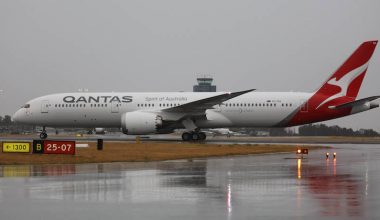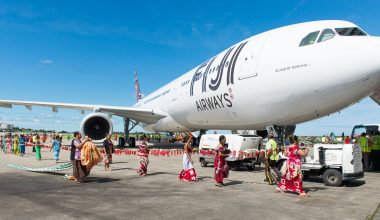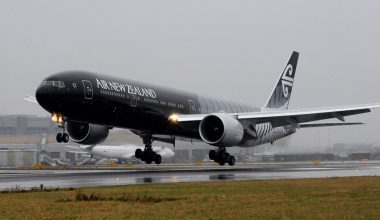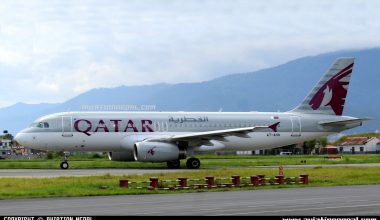Air New Zealand, the flag carrier of New Zealand, has pursued a $2.2 billion recapitalization plan as it takes a step forward to recovery from the COVID-19 pandemic. The $2.2 billion recapitalization package will be used to repay the existing loan under the Crown support package received to better position the airline during the pandemic period, strengthen its balance sheet, and help the airline smooth its way to recovery navigates its third year of the coronavirus pandemic.
After two long years of COVID-related travel restrictions across its international network and domestic lockdowns, Air New Zealand launched a comprehensive capital raising plan on Wednesday to help the carrier restore its financial position from the damage.
Provisions under the Recapitalization package
Air New Zealand’s recapitalization package is a blend of shares and debt, made up of a $1.2 billion pro-rata rights offer giving a heavily discounted share sale to shareholders, $600 million issuances of redeemable shares to the majority shareholder, and the new $400 million Crown loan to substitute the existing security facility, with an extended-term to January 2026.

The national carrier seeks to raise $1.2 billion from eligible shareholders, offering two new shares for every share they now own at an offer price of 52 cents per share, implying they get a 61% discount on the carrier’s current share price of $1.38 per share. The Crown will take part in the Rights Offer to remain as a majority 51% shareholder, worth up to $602 million, and equity capital raise will open from April 6, 2022, and close on May 2, 2022. Shareholders taking up their full rights will also be entitled to participate in the shortfall bookbuild process. Still, those who choose not to participate can sell some or all of their rights on the market between April 4 and April 26 and potentially receive some value if the price in the shortfall bookbuild process is more than the offer price. Under Rights Offer, there will be a share issue of around 2.3 million, demonstrating a nearly 200% rise in prevailing shares.
The $600 million capital under the $2.2 recapitalization package includes redeemable shares to be issued to the New Zealand government under the existing subscription agreement. The airline seeks to refinance $400 million. The Crown will provide a new $400 million standby facility by Jan 2026.
Road to recovery
The launching of Air New Zealand’s $2.2billion equity capital package represents one of the largest capital raises in the country’s corporate history, supported by the government as the majority shareholder to accelerate the airline’s recovery. The government’s outlined plan of the phased reopening of borders in 2022 is set to make the investment more attractive for shareholders. Some portfolio experts assess that shareholders who commit more capital are more likely to benefit from the recent offering than reticent shareholders.
The airline’s chair Dame Therese Walsh insists that it is the right time to raise equity to get the airline ready to reemerge and create a fair deal for shareholders having options with the offering. Although there will still be bumpy skies ahead over the next coming years, with a prediction to end up in financial profitability land only in 2026, Air New Zealand is committed to rebuilding a stronger, more nimble airline that delivers for all New Zealanders.

The capital raise plan is an indicative pathway to shore up the airline’s balance sheet and improve the investment appeal of the carrier as it prepares to return to international destinations, grow its domestic network, and streamline the fleet to more efficient and sustainable aircraft. The carrier has restored 40 percent of its flight to international destinations, including Singapore, Los Angeles, and Vancouver. Additional preparations are underway to launch the Air New Zealand service to New York.
Some factors present a negatively skewed risk to Air New Zealand shares, including uncertain impacts of COVID, the rising price of fuel, changes to the timing of border opening, competition changes, foreign exchange, underlying customer demand, etc.
Unprecedented damage inflicted by Covid
The onset of the COVID-19 pandemic in early 2020 resulted in border closures, halting of flights, parking of airplanes, and plummeting flight demand by around 95%. The crisis wiped out passenger numbers overnight, and Air New Zealand flagged losses of $454 million in 2019/20 and $289 million in June 2021.
At present, New Zealand has opened borders to its citizens, vaccinated travelers with a border exception, and those under current border settings. Still, from October 2022, it will open all visa categories.




